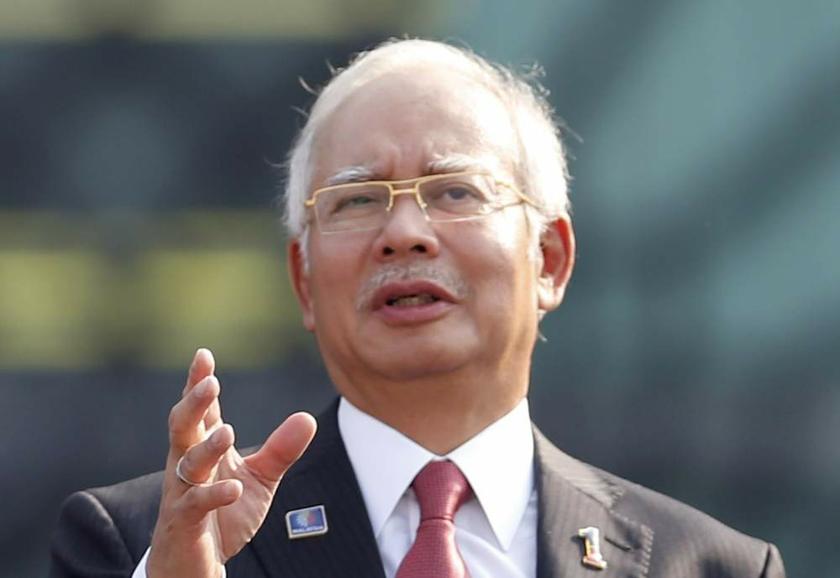KUALA LUMPUR, Sept 26 ― By reintroducing detention without trial in the country’s statute books, Prime Minister Datuk Seri Najib Razak has reneged on his very own pledge not to revive the controversial provision, Lawyers for Liberty (LFL) has said.
The non-governmental organisation reminded the prime minister that it was he who promised in his Malaysia Day speech two years ago to respect human rights and civil liberties, before announcing the repeal of two highly-contentious British-era laws that still allowed for detention without trial at the time ― the Internal Security Act (ISA) and the Emergency Ordinance (EO).
“He had also persistently lied and misled the public when he continuously affirmed that his government would respect human rights and liberties and will not revive detention without trial,” LFL co-founder and adviser Eric Paulsen said in a strongly-worded statement here.
The lawyers’ group was responding to the latest whirlwind of amendments to several anti-crime laws tabled by Putrajaya in the Dewan Rakyat yesterday.
Most significant of them all was the Prevention of Crime (Amendment & Extension) Act 2013, which seeks to reintroduce the element of detention without trial, which had been done away with when the ISA and EO were abolished.
Under Clause 19A, a person can be detained without trial for up to two years, which can be renewed indefinitely.
The amendments also disallow substantive judicial review and deny legal representation to any detainee except when his or her testimony is required during the inquiry process.
This effectively means that the merits of a detention order cannot be challenged in court, much like in the ISA.
LFL noted that apart from these sweeping changes to the Prevention of Crime Act, the government also included an amendment to the preamble of the legislation to include the provision under Article 149 of the Federal Constitution, which states that the country is “threatened by a substantial body of persons inside and outside
Malaysia to cause, or to cause a substantial number of citizens to fear, organised violence against persons or property”.
“These amendments are absolutely scandalous and an antithesis to our democratic and fundamental rights to freedom from arbitrary detention and punishment, due process, rule of law and legal representation,” Paulsen wrote in the statement.
“It goes without saying that the amendments are unconstitutional especially since Malaysia is living in peace time with no threats of subversion, insurrection or civil unrest as envisaged by Article 149 of the Federal Constitution,” he added.
He said although the amendments were made to crack down on organised crime, it was almost certain that the amended PCA provisions would be abused, judging from the government’s past track record of wrongfully using laws like the ISA to silence its detractors.
The LFL also expressed concern over the proposed amendments to the Penal Code, particularly Clause 121E(1) on the mutilation and destruction of any national emblem or flag and Clause 121E(2) on using, recognising or promoting the use of any flag other than the official flags.
Both amendments now carry maximum punishment of between five and 15 years, and a fine.
“Needless to say, these new offences transgress freedom of speech and expression as guaranteed by the Federal Constitution and are out of place in a modern and democratic Malaysia.
“Further, the proposed punishment for these offences are extremely harsh and disproportionate compared to the rather minor nature of the act of civil disobedience,” Paulsen said.
On Clauses 265A, 265B and 265C of the Criminal Procedure Code (Amendment) Act 2013, which essentially allows witnesses to testify in secret, the LFL said such secrecy is “repugnant” to fundamental principle of the criminal justice system ― fair trial for all.
“The accused must be afforded an opportunity to challenge the evidence presented; and the guilt against the accused must be proven beyond a reasonable doubt,” Paulsen wrote.
In a historic speech on the eve of Malaysia Day in 2011, Najib, then still in his first term as prime minister, announced a raft of legislative reforms that he pledged was part of his government’s bid to allow for greater civil freedom.
He ploughed ahead with the promise in the months that came, repealing the ISA, the EO, doing away with annual printing permits under the Printing Presses and Publications Act, allowing student participation in politics under the University and University Colleges Act and enacting a law to better regulate public gatherings ― the Peaceful Assembly Act.



















